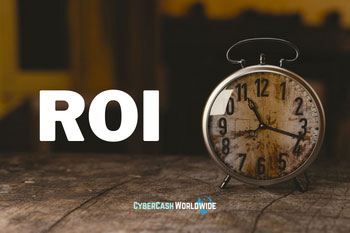Retirement planning is, no doubt, one of the most important things in life you do to yourself. Not only will it give you a sense of peace of mind, but it can also be one of the most financially secure decisions you ever make.
If you’re still feeling unsure about your retirement timeline or what to do to get started, read on for some helpful tips. From setting realistic goals to creating a budget, this guide has everything you need to get started on the right track. You may still have long years before your retirement yet, but you can start preparing today.
Make a Retirement Budget
Making a retirement budget is one of the most important steps you can take to ensure a peaceful retirement. By setting realistic goals and creating a spending plan, you can reduce your stress levels and enjoy your retirement years more fully. Here’s a summary of the things to do when creating your retirement budget.
- Calculate how much you need to save each month to have enough money available when you retire. This will depend on your age, salary, and other factors.
- Start saving as early as possible. A 401(k) or 403(b) could be a good option for saving, but make sure to check the details first to make sure it’s right for you.
- Make sure you aren’t maxing out your retirement accounts each year by contributing enough money so that they grow automatically over time. This will help ensure that you always have enough money when you retire.
- Review your expenses regularly to see if there are any areas where you can cut back or eliminate unnecessary costs altogether. This could include reducing cable TV, cancelling unnecessary services like Netflix or Hulu, or cutting travel expenses to a minimum.
- Assess what type of lifestyle will work best for YOU in retirement and make adjustments accordingly (ie., moving closer to family members or friends who can help take care of elderly relatives, downsizing into a simpler home). It’s also important to think about what activities you’d like to keep up, whether that be spending time outdoors or reading for pleasure.
Once you have a good understanding of your dream goals, creating a retirement budget should become more straightforward than you think. Create a list of your monthly expenses, add in any savings or investments you have, and see where the money goes.
You can also use a free online retirement calculator to help you figure out how much you need to save each month in order to reach your retirement goal.
Choose the Right Retirement Plan
When it comes to retirement, most of us want to know as much as possible about what we're getting ourselves into. There are a variety of retirement plans available, and each has its own unique set of benefits and drawbacks.
Below is a guide to help you choose the right retirement plan for you.
1. Define your retirement goals
First thing you do is to clarify what you really want to do from now until your retirement age. What do you hope to achieve by retiring? Do you want to keep working part-time? Retire early? Maybe you just want some financial security in case something happens and you can't work anymore. Once you've defined your goal, it will be easier to figure out which type of retirement plan is best for you.
2. Work out how much money you'll need in retirement
This is one factor that affects which type of retirement plan is best for you. If your goal is to retire at age 55 with $200,000 saved up, a 401(k) may be the right choice for you because it allows your employer to match some or all of your contributions, so the total amount invested would be even higher than $200,000 (assuming employer matching policies still exist). However, if your goal is to retire at 65 with $500,000 saved up, an IRA may be a better option because contributions are not limited by salary and the account can compound over time without taxes being taken out.
3. Decide how you want your retirement income to be spent
One of the biggest decisions you'll make when planning for retirement is how you want your income to be spent. Do you want to live off of your savings while you're still working? Or would you rather receive a fixed monthly income while you're retired? Once you've decided how much money you'll need in retirement, it will be easier to decide which type of retirement plan is best for you.
4. Consider your risk tolerance
Another important factor to consider is your risk tolerance. Are you comfortable with the idea of investing in stocks? Are you willing to take on some risk by investing in an IRA? Consider your investment goals and how willing you are to take on risks before making a decision about which retirement plan is best for you.
5. Talk to a financial advisor
Once you've determined which type of retirement plan is best for you, it's important to talk to a financial advisor about the options and how they could work best for your specific situation. A financial advisor can help answer any questions and provide guidance on how best to invest your money so that it will provide the greatest return possible over the long term.
Create a Legacy
Your retirement plan starts with creating a legacy - things that you leave behind for others. It can be something as simple as making sure your taxes are paid on time, or it can be something more substantial, like donating money to a charity.
But even if you don't have any specific plans for your legacy, there are still ways to create peace of mind for retirement. Here are five tips:
6. Save for retirement
One of the best ways to create peace of mind for retirement is to make sure you're saving money each month. Having enough saved up will give you the security that you won't need to rely on government pensions or Social Security when you retire. The sooner you start saving, the better!
7. Get a good return on your investments
Another way to ensure a comfortable retirement is to get a good return on your investments. This means choosing investments that will provide you with growth over the long term, rather than trying to chase short-term gains. Over time, this can add up to big savings!
8. Make healthy lifestyle choices
Finally, making healthy lifestyle choices – such as eating balanced meals and getting enough exercise – can help reduce your risk of conditions like arthritis in later years. If we all take these steps now, we'll be in good shape when it comes time for our retirement years!
9. Protect your assets
Finally, it's important to protect your assets – both during retirement and throughout your life. This means setting up a wills and estate planning plan, as well as keeping copies of all your important documents in a safe place.
10. Again, talk to a retirement advisor
If you're not sure where to start with creating a legacy or protecting your assets, consider talking to a retirement advisor. They can help you create a plan that's tailored specifically to your unique situation.
Take Care of Your Finances
As you approach retirement, it's important to take care of your finances so you can enjoy your life without worry. Here are some tips to help you protect your assets and make smart decisions about investments:
11. Set up a retirement plan
This is the single most important step you can take to ensure a peaceful retirement. A 401(k) plan is an easy and affordable way to start building your nest egg. You may also want to consider IRA accounts or other types of plans offered through your employer.
12. Invest in stocks wisely
One of the best ways to build wealth over the long run is to invest in stocks, which offer the potential for long-term growth. However, investing in stocks carries risk, so be sure to do your research before making any decisions.
13. Pay off debt and save money on interest payments
When you have less debt hanging over your head, you can put more money into savings and investments – which will grow faster over time thanks to lower rates of return on those investments. You can also reduce your monthly expenses by cutting back on needless spending.
14. Make smart choices when it comes to spending money outside of retirement accounts
Spending beyond what you've saved will likely result in bigger financial problems down the road – especially if you don't have enough money set aside for emergencies or unexpected costs (such as medical bills and repair costs). Aim for responsible spending habits that won't put too much pressure on your retirement savings.
15. Keep your expenses under control
Get used to a life where you don’t overspend unnecessarily, which will ensure a comfortable retirement plan. This means putting aside as much money as possible each month so you don't have to rely on debt or other sources of income in later years. If you plan this well, you can gradually start to spend less. It’s not as tough as you think once you learn to be sensible.
Invest in Yourself
As you near the end of your working life, it’s natural to start worrying about how you’re going to manage on your own. But there are steps you can take now to ease your mind and put yourself in a better financial position for retirement.
One key step is to develop a budget and stick to it. This will help you spot areas where you can save money and identify priorities in your life. You should also think about what kind of retirement lifestyle you want - maybe a low-cost one that involves plenty of travel or simple living in one place. And don’t forget about estate planning—preparing for your death is an important step in preparing for your retirement.
Finally, invest in yourself by taking classes, learning new skills, and getting involved in volunteer work. These activities not only benefit you now but could make you more employable down the line. Building a positive outlook on retirement will help make it a reality—and that peace of mind is priceless!
Live a Good Life
Many people are looking to retire comfortably and live a good life. However, retiring can be quite daunting when you don't have a clear idea of what that looks like. In this article, we will outline some tips for living a good retirement life and help you gain peace of mind for your future.
First and foremost, make sure you’re taking the necessary steps to save for your retirement. Start with setting aside money each month so you can build up a sizable nest egg over time. Also, consider investing in securities that offer stability and income potential over the long term such as mutual funds or ETFs.
Once you have saved up some money, it’s important to start planning for your retirement lifestyle. Make sure you have enough money saved to cover basic needs such as food, housing, healthcare costs and leisure activities. Additionally, plan on spending time with family and friends during your retirement years. This will boost your enjoyment of life and help keep you connected during a time of change.
Finally, remember to enjoy every moment while you are still able! Take advantage of opportunities while they are available and make the most of every day – there is no telling how long these moments will last!
Protect Your Assets
When it comes to retirement, one of the most important things you can do is protect your assets. There are a number of ways to do this, and it’s important to choose the right approach for you.
One way to protect your assets is to set up a retirement account. This will give you the flexibility to access your money when you need it, and it will also help you save for your future. You can also make sure that your assets are protected by getting insurance on them. This can protect you from unexpected expenses, and it can also provide financial protection in case of a disability or death.
It’s important to make sure that you have a plan for retirement, and protecting your assets is one way to help ensure that you have everything that you need when it comes time to retire.
Stay Connected to People You Love
When you retire, you'll want to be able to stay connected with the people you love. That means being able to send and receive emails, text messages, and phone calls. You may also want to keep in touch through your favorite social media platforms. Here are some tips for staying connected during retirement:
Set Up Email Accounts
First, set up an email account so that you can send and receive emails. You can use either a free or paid service, but it's a good idea to choose a service that has good customer support. You'll also need an email address for your bank and other important contacts.
You can also set up an email account on your computer using services like Gmail or Yahoo Mail. Just remember to add your retired username (if you have one) when signing up so that your messages will arrive in the right inboxes.
Use Social Media Platforms
Facebook, Twitter, Instagram… Use social media platforms to stay connected with friends and family members. These platforms are great ways to share photos, stories, and updates about your life outside of work. You can also use these platforms to connect with people who are interested in similar topics as you are.
Beware of Spammers
Third, be aware of spam emails that may try to lure you into clicking on links or opening attachments. Always be sure to check the “signature” field before clicking on any links – this will show you the name of the person or organization sending the email. If you don't recognize the sender, don't open the email.
Join or Start a Club or Group
If you're considering whether or not to join or start a retirement club or group, here are some tips to help make the decision easier:
Consider your lifestyle
Do you want to be part of a group that meets regularly, or are you happy staying in touch with friends through social media?
Think about your interests
Are there particular topics or activities that you'd like to explore with others?
Inquire about membership benefits
Does the club have discounts on services, products, or member events?
Seek input from family and friends
What do they think? Are they able to give you unbiased feedback?
Compare costs and benefits before deciding if joining is right for you
It can be helpful to compare prices and see if the cost of membership is worth the benefits offered by the club or group.
Invest in Gold IRA
If you're following a traditional 401k or IRA retirement plan, gold could be an excellent investment for you. Gold is a safe-haven asset that has historically provided solid returns, even during difficult economic times.
In addition to the financial benefits of investing in gold, there are many other reasons why it may be a wise decision for you to do so. Gold is not subject to inflation, and as such can provide stability and security in your retirement years. Additionally, holding physical gold also provides you with the opportunity to hold onto your wealth while honoring traditions and cultural values that may be important to you.
If you're interested in investing in gold through an IRA account, explore what options are available to you through your retirement plan provider. There are often special investments offered through 401k and IRA plans that allow for greater flexibility in terms of how and where you invest your money.
Conclusion
Retirement is a time of reflection and opportunity. It's a chance to take stock of your life and figure out what you want next. One common goal retirement planning experts suggest is finding ways to reduce stress levels so you can enjoy your golden years without breaking down.




